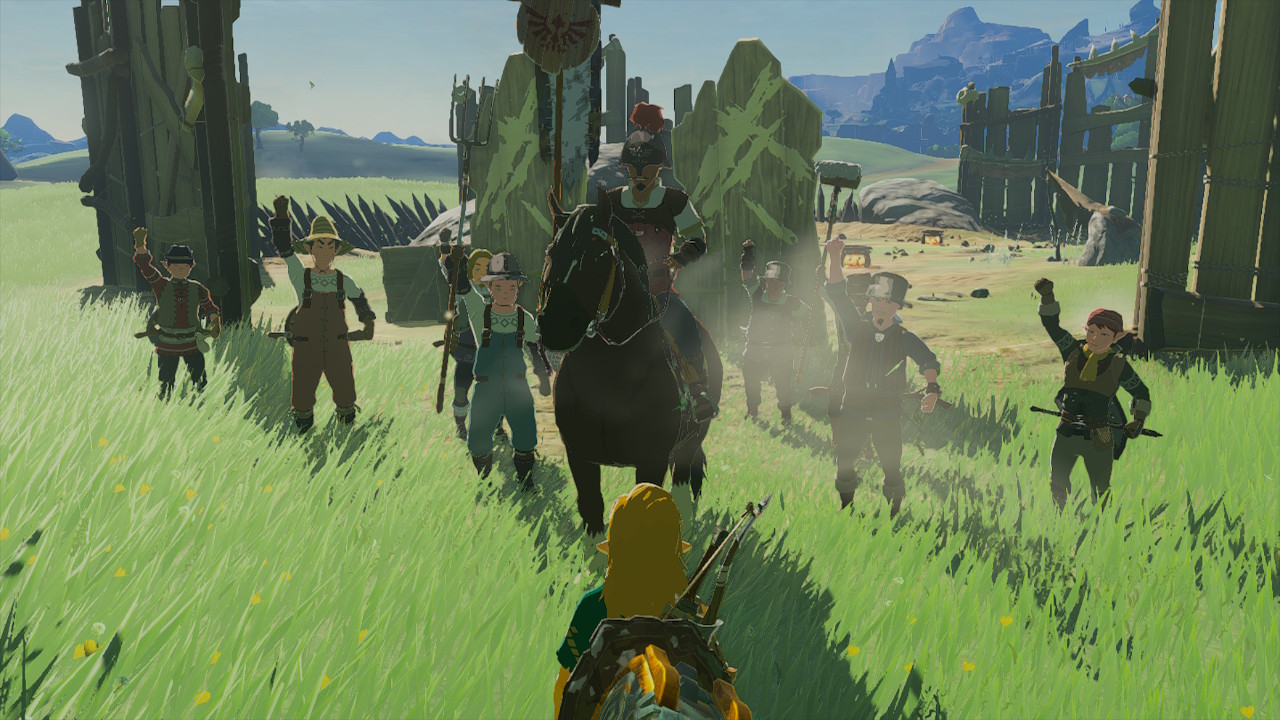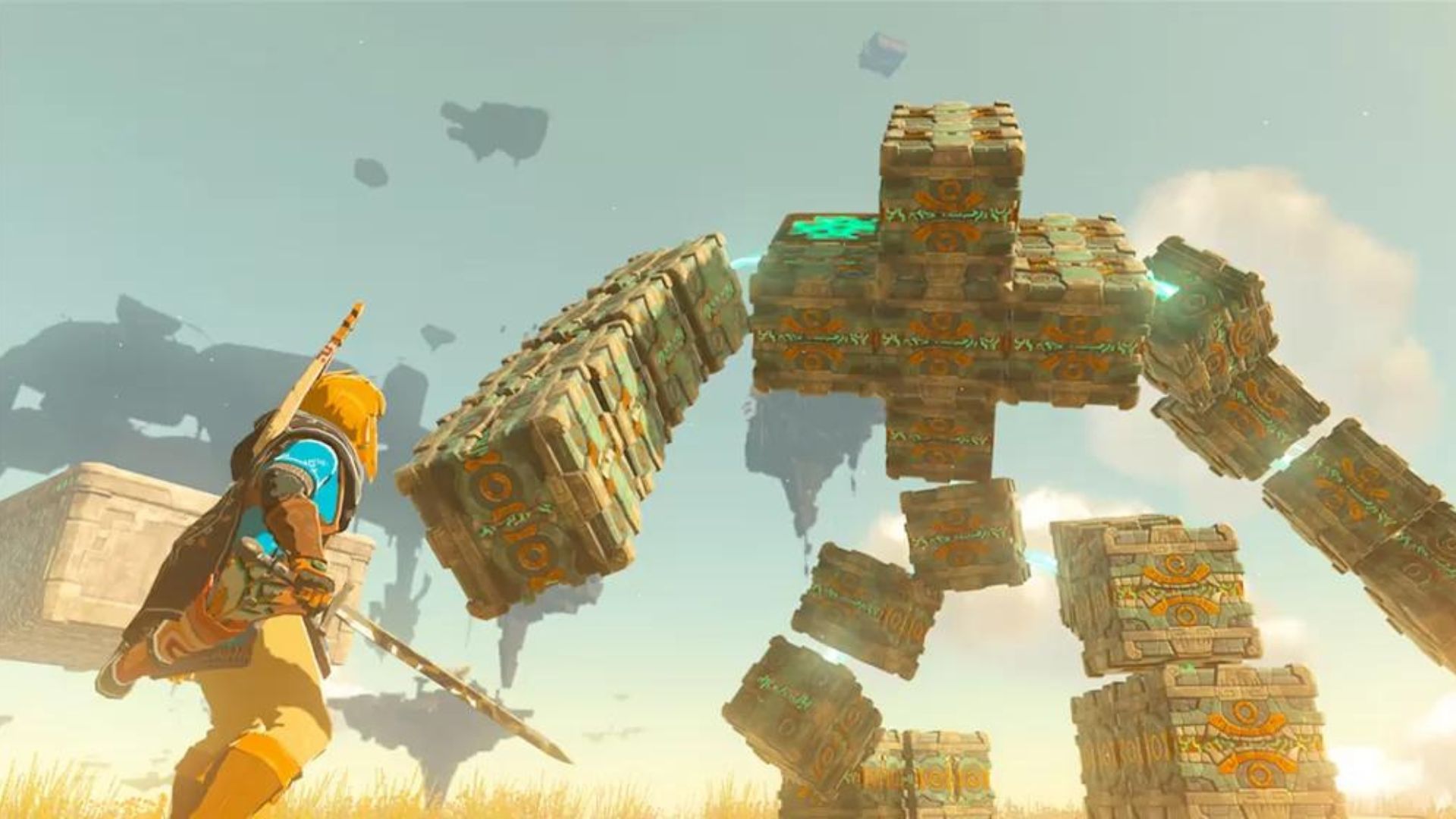Screw you tech bros, Tears of the Kingdom is the real metaverse
Working harder, not smarter

Sign up for breaking news, reviews, opinion, top tech deals, and more.
You are now subscribed
Your newsletter sign-up was successful
There was a point halfway through a shrine in The Legend of Zelda: Tears of the Kingdom when I found myself unable to stop thinking about a quote from Parks and Recreation's Ron Swanson: “If given the choice between doing something and nothing, I’d choose to do nothing... But I will do something if it helps someone else do nothing. I’d work all night, if it meant nothing got done.”
The Legend of Zelda: Tears of the Kingdom had presented me with a railway and a series of planks, and expected me to build some form of unholy contraption to traverse the former. There were, however, two problems. The first was that I do not react well to being told what to do, even in the context of a video game I have personally decided to play.
The second regrettably came from my own brain; I am, essentially, whatever you’d call the opposite of an engineer. I once did some in-depth 'intelligence' test during the lockdown and it found that, whenever spatial awareness was involved, I performed about as well as the carcass of a rat.
Anyway, I was in that shrine and I decided I’d just try and tightrope across the rails. I tried it and died. I tried it again and died again. On the third try? I died. Every time I fell I thought of Swanson: I’d rather yeet myself into the great unknown time and time again rather than spend even a moment figuring out how to build a complex device.
I did manage to get across in the end, celebrating by yelling, out loud, to no one in particular, “Never punished!” (cheers, FrostPrime). As often while playing both this game and its predecessor, it did also make me wonder: did the developers see this coming? Was this a Nintendo-approved way of winning or am I just God’s favorite idiot savant?

There is no real way of knowing, which is the beauty of Nintendo's recent Zelda titles. More than perhaps any other games, they shamelessly let the players bring their personalities, strengths, and flaws into gameplay, making the adventure entirely unique in the process. If you put 500 people in a room and gave them all a Nintendo Switch and a pair of Nintendo Switch headphones, the odds that even two of them would go on to do all the same things in the same order would pretty much be zero.
Hell, even if you restricted the scope to a couple of monster fights, you’d still have a hard time getting two people to do the same thing, especially now that weapons are endlessly customizable. It’d be like throwing people into central London and expecting them all to somehow have the same day. Obviously, they wouldn’t.
Sign up for breaking news, reviews, opinion, top tech deals, and more.
While arguing with some tech bros at a conference, I kept returning to this thought. They were talking about the metaverse and NFTs and the blockchain, and they were doing their best to sound evangelical about it all. Of course, it’s not all about money, they said: it’s about bringing people further into gaming, about buying and storing skins and special weapons, about leaving your mark in a game.
I’ve got everything I want right here, and I can strap a rocket to my shield
People shouldn’t just be passive gamers, they explained. With all this new tech, all these new innovations, they could bring their whole selves into the games, and it would change everything. It would have been hard to take them seriously at the best of times, but timing had really worked against them; our chat took place a few days after the release of Tears of the Kingdom, and it was all anyone could talk about.
It was an odd experience, watching seemingly clever people miss the point entirely. They were right to say that a great video game is one that feels like it’s meeting you halfway, but you don’t need tokens, fungible or otherwise, to achieve that. Communities also don’t need to be built by people always keeping an eye on how full their wallet is getting.
They can just be formed online, organically, among people who enjoy committing and documenting increasingly inventive war crimes against Koroks. All you need, at the end of the day, is a really great game.
There’s no need for head-spinning innovation or revolutionary concepts. I bought Tears of the Kingdom and now play it on my little console and talk about it with my friends, just as I bought early Zelda games as a child, played them on my little console, and talked about them with my friends.
The only difference, really, is that the games have gotten so good that I nearly feel I’m not playing as Link, but as a version of myself that happens to be a Hyrule warrior. I love cooking elaborate recipes, running away from my problems, and occasionally biting off more than I can chew, in the game as in life. Why would I need the metaverse to see how my personality would fare in a parallel, digital world? I’ve got everything I want right here, and I can strap a rocket to my shield.
The Legend of Zelda: Tears of the Kingdom is available now for the Nintendo Switch and you can find it on our list of the best Nintendo Switch games - but if you're looking away from the beaten track, check out our best underrated Switch games guide too.